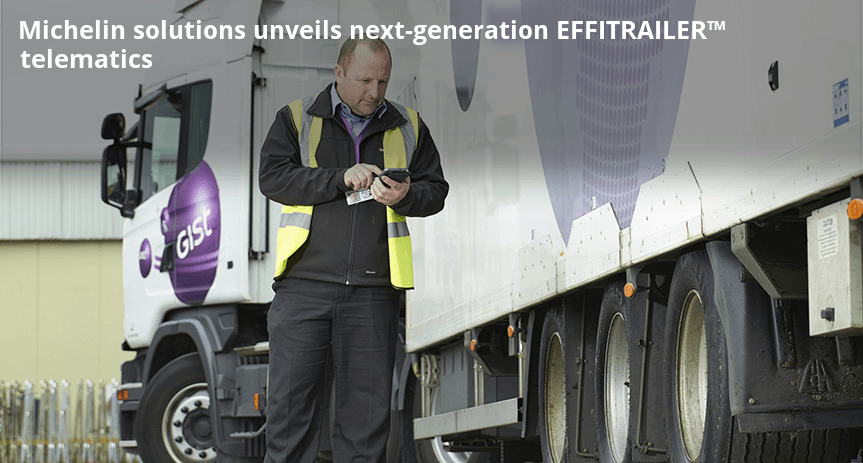Michelin: Tires-as-a-Service

Michelin's journey from selling tires to selling outcomes.
Michelin is one of the three largest manufacturers of the tires worldwide [1]. The company manufactures tires for a wide variety of vehicles from space shuttles to bicycles. Michelin has a history of operating with an innovative mindset in order to stay resilient and relevant in an intensely competitive marketplace. It is credited with transforming the industry through inventions such as the first radial tires as well as the publication of the Michelin Guide to encourage people to drive, thereby increasing the demand for tires [2].
In 2000, Michelin made a giant leap by expanding its remit from solely being a manufacturer of tires to becoming a service provider through the launch of the Michelin Fleet Solutions (MFS) [3]. Michelin’s tires were traditionally priced at a premium and the idea was to create a value-added service for large vehicles fleet operators. Instead of a traditional model, where the customer bore the upfront cost of the tire as well as the entire risk associated with its replacement in case of damage, MFS shared this risk with the consumer for a nominal monthly fee. The project was unsuccessful due to the company’s failure to communicate the value proposition of the added service (better maintained tires last longer), and its inability to align internal incentives. For instance, the sales team felt that by selling MFS, they would be undermining their primary KPI of new tire sales. Moreover, the company struggled to manage the complexity of the cost structure associated with the provision of this service.
Despite the setback, the senior management was convinced that the future lay in harnessing the power of information systems. In 2013, they created a separate division – Michelin Solutions – in order to design, develop and market services for commercial vehicles, particularly trucks. By leveraging IoT, they launched EFFIFUEL – an ecosystem that uses sensors inside vehicles to collect data, like fuel consumption, tire pressure, temperature, speed, and location [4]. This data is then processed in a cloud solution and analysed by Michelin experts, who provide recommendations and training in eco-driving techniques [5].
EFFIFUEL is a comprehensive ecosystem that includes sophisticated telematics, training in eco-driving techniques and the EFFITIRES optimized tyre management system.
Confident Customer Promise
EFFIFUEL™ provides a “satisfaction or your money back guarantee” by providing the fuel efficiency service risk-free to truckers, and refunding them if the pre-defined targets for savings are not met.
Strong Results
By encouraging careful handling of the truck equipment, the company has unlocked significant savings for their customers: a reduction in fuel consumption of 2.5 litres per 100km represents annual savings of €3,200 for long-haul transport travelling over 120,000 km (at least 2.1% reduction in total cost of ownership and 8 tonnes in CO2 emissions) [6].
Michelin has learned its lesson from MFS and now works with specialist partners, particularly in the field of big data analytics. Success factors have been an emphasis on cultural change, convincing sceptical employees about the benefits of the new business model, and having an iterative approach built around pilots within the standalone entity of Michelin Solutions [7].
In doing so, they have migrated from being a company that sells tires-as-a-product to a service that guarantees performance, which has led to higher customer satisfaction, loyalty and retention and raised profits [8].
By embracing technology-led products, they are also bedding a culture of digitization operationally with production techniques increasingly using robotics, 3D printing and augmented reality to create the plant of the future. By demonstrating success in an incubator, the company has managed to create a more open-minded attitude in the workforce. Furthermore, Michelin is now building more internal capability through acquiring third-parties such as Sascar [9], a Brazilian digital fleet management company with expertise in telematics.
The future
Michelin is in a position to take advantage of their head-start by building on the ‘as-a-service’ [10] offering model to capture the larger space of drive management. In order to sustain their success, Michelin could unlock further spaces:
- The low-cost emerging economy: the hotbed for growth is China and India, traditionally dominated by low-cost suppliers. There’s an opportunity to build accessible and affordable solutions that can operate in more complex road conditions. They need to act fast and build a flexible operating model for monitoring systems and local knowledgebase required to win there.
- Uberization of tires: Due to direct access to consumer data and internal data mining capability, they could launch an on-demand tire service using predictable modeling.
- Autonomous vehicles: momentum is building for self-driving vehicles. In order to get a slice of this market, Michelin will need to showcase the strength of its offering to become the partner of choice within driving sensors. This may require their organizational borders to be more translucent so they will need to rethink how they protect the IP of their processes.
References:
- Bob Ulrich. Truck tire market share. < http://www.moderntiredealer.com/uploads/stats/mtd-43.pdf> Accessed on 16 Nov 2016
- Alex Mayyasi. Why does a tire company publish the Michelin Guide? < https://priceonomics.com/why-does-a-tire-company-publish-the-michelin-guide/> Accessed on 16 Nov 2016.
- Business Model Innovation in the tyre industry. Frontere Noemie. June 2013 < http://www.slideshare.net/NomieFrontre/business-model-innov> Accessed on 16 Nov 2016.
- Ian Norwell. Case Review: Michelin. Transport Engineer < http://www.transportengineer.org.uk/transport-engineer-features/case-review/62805> Accessed on 16 Nov 2016
- Michelin Solutions launch press release. Accenture press office. < https://newsroom.accenture.com/subjects/alliances/accenture-collaborates-with-michelin-to-launch-michelins-new-mobility-focused-business-based-on-accenture-cloud-platform.htm> Accessed on 16 Nov 2016.
- Digital Transformation of Industries. World Economic Forum. January 2016. pg. 10.
- Michelin. World Economic Forum Case Studies. <http://reports.weforum.org/digital-transformation-of-industries/michelin-solutions/> Accessed on 16 Nov 2016.
- Open Minded – Driving growth in a spirit of openness. 2014 Annual and Sustainable Development Report. Michelin. pg. 8-9.
- Company website. Michelin < https://www.michelin-solutions.com/en/> Accessed on 16 Nov 2016.
- From product to service: Navigating the transition. Insights@IMD. < http://www.imd.org/research/publications/upload/26-From-Product-to-Service-final-22-07-13.pdf> Accessed on 16 Nov 2016.





The idea of integrating data analytics with tires is an interesting one, especially since tires aren’t a product one typically associates with complex component parts, sensors, or anything other than rubber. One thing that occurred to me is that this technology they have developed that gathers information on fuel consumption, tire pressure, temperature, speed, and location would be well-applied in the field of self-driving cars. In a world where everyone is mindful of fuel efficiency and cutting costs, building the Michelin programs into these self-driving vehicles would reduce the amount of wear and tear on the car and reduce fuel consumption (could have written about that for the climate change post too).
First of all, can we all acknowledge EFFITIRES and EFFIFUEL are horrible names for a new offering? Get what they were going for, but ouch…
I agree with Tom above that tire analytics is an interesting one, particularly because it’s also so very salient to our last discussion around climate change. If we can get big data into tires, we can work on reducing fuel, breaking speeds, quick acceleration, etc on a scale we can’t feasibly due now. Very cool.
In addition, I think it’s important to consider what associated products Michelin could now start selling. By turning tires into a service, they make their brand very sticky and therefore make it very hard for consumers to leave for another tire company. Obvious cross sells include Michelin starred restaurants, but perhaps it could partner with hotels and offer discounts for better driving. Or Michelin could expand its core business and get into other “smart” car parts (engines seem particularly beneficial) and truly own a consumer’s entire experience.
Emad, we are flattered that we are a topic of discussion at HBS. However, I wonder about the depth and breadth of your sources for this article. Some of the facts are spot on, while others seem to come from a more narrow perspective. While the results of Michelin Solutions in Europe are mixed, the success of MFS in North America are arguably very good… and growing. We would welcome the opportunity to expand your thinking and perhaps add more current detail.
On the other hand, I applaud the focus on tires-as-a-service and digital transformation of the industry. This is clearly part of our vision.
Let me know if you would like to discuss at some point. At Michelin we have a principle regarding “Respect for the facts.” I am sure that is your intent as well.
Respectfully,
CharlesT, Director Service Marketing, NA